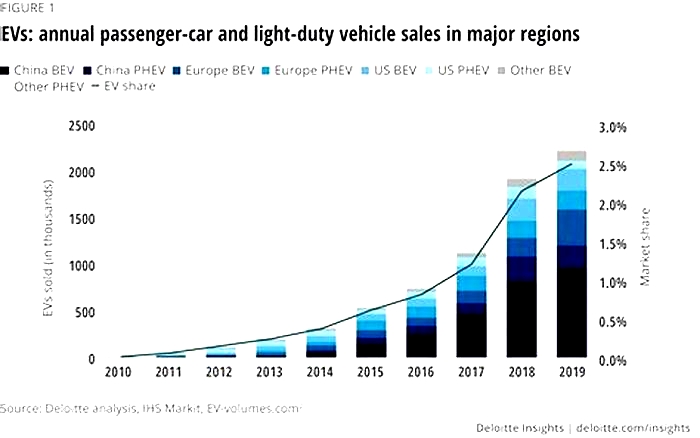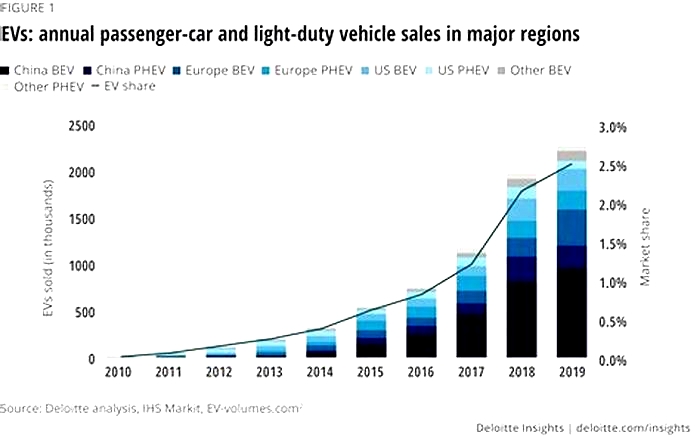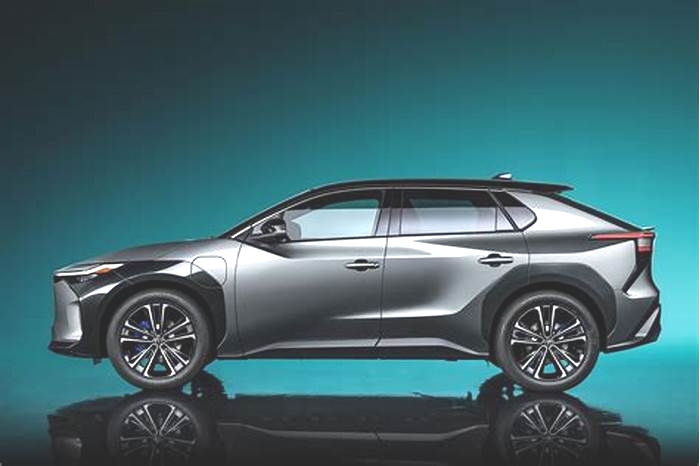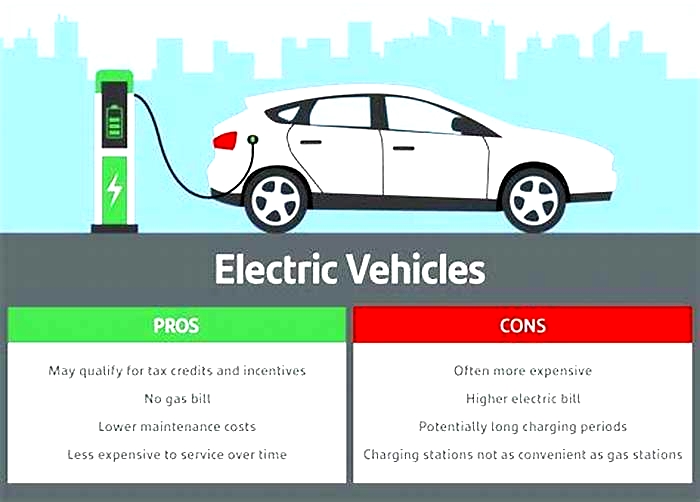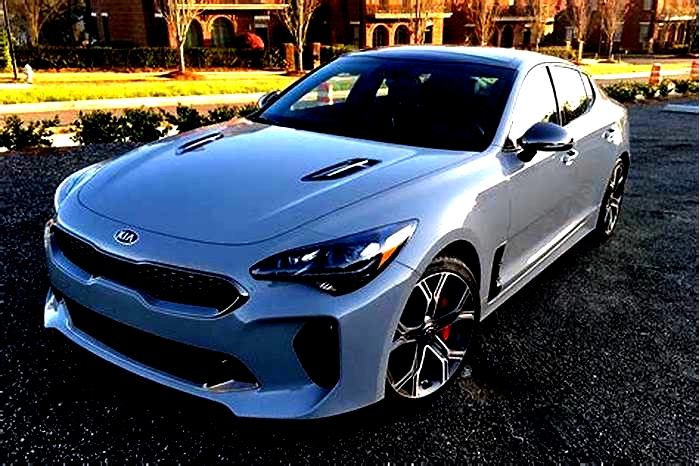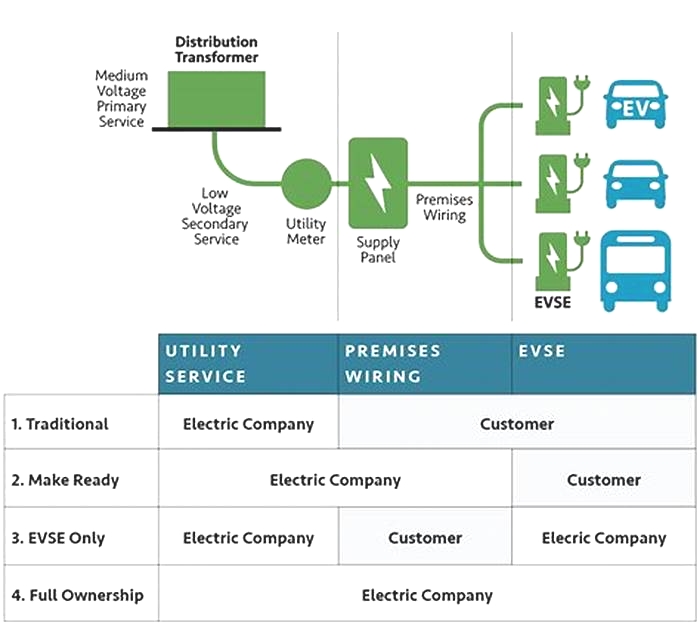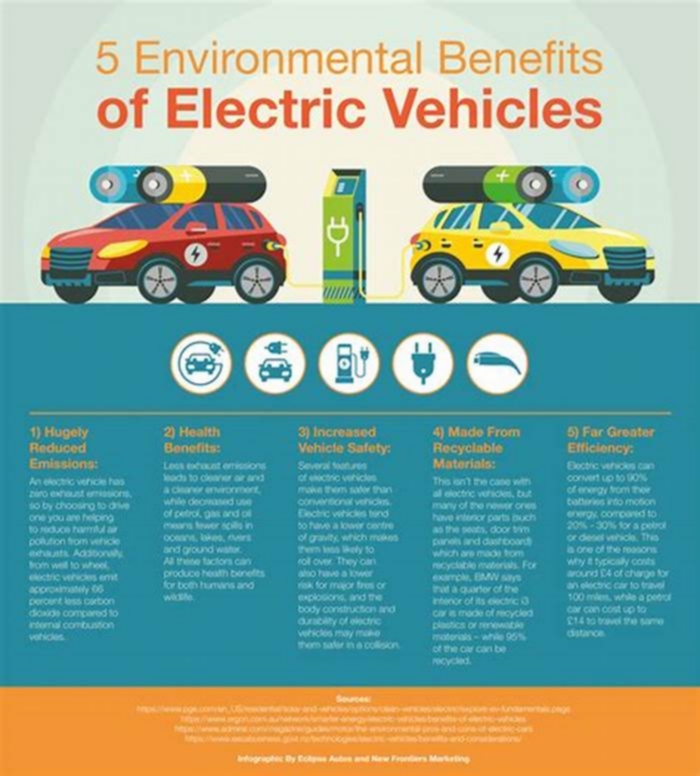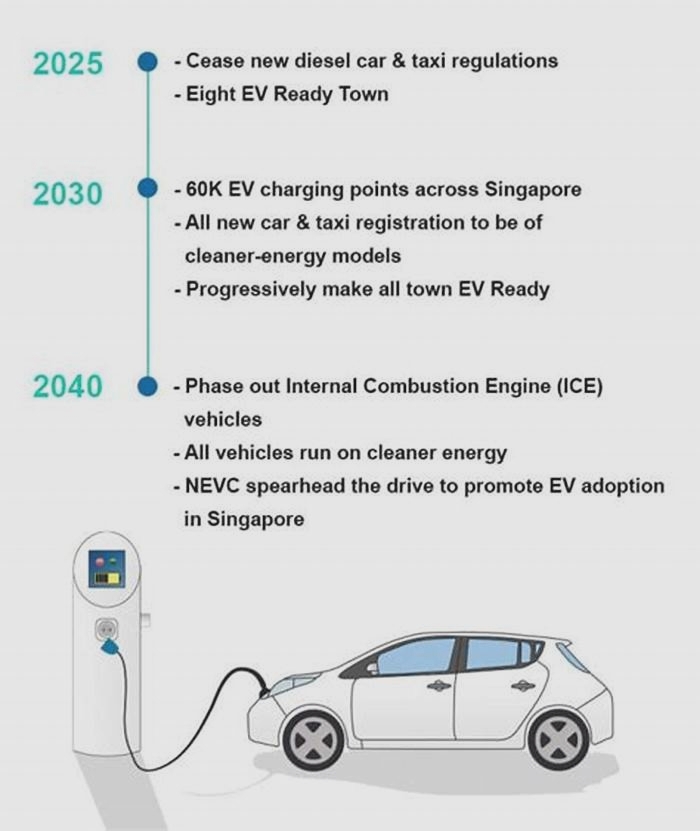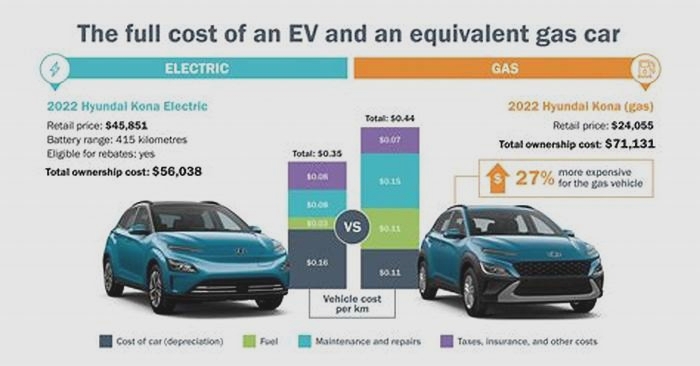Electric Vehicles Expected to Offer Subscription Based Ownership Models
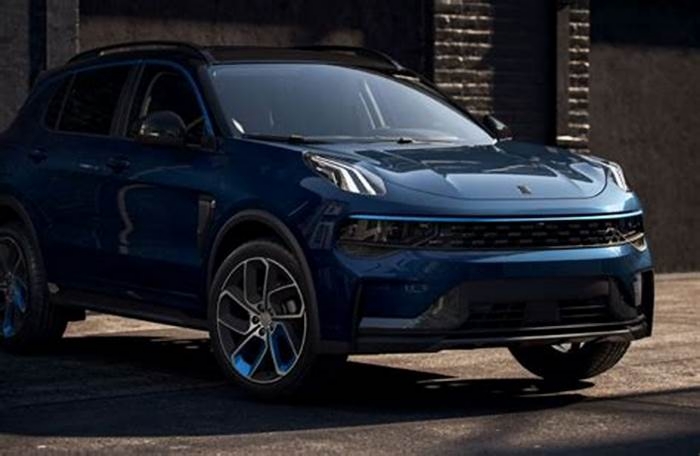
Can Subscription-Based Models Boost Growth Of Electric Vehicles Market In India? Read On
Last Updated:

Can Subscription-Based Models Boost Growth Of Electric Vehicles Market In India? (Representative Image) (Photo: Canary Media)
Tata Motors, a giant in the Indian EV market, has recently introduced a subscription-based model of the Nexon.
The Indian auto market has witnessed a significant emergence of electric vehicles (EVs) over the past year.
Many companies have been putting more focus on the battery-operated segment. While the growth is evident overall in the electric vehicle market, the two-wheeler segment has contributed more than the passenger cars.
According to research by consultancy agency Brain & Company, electric vehicles hold a five percent share of the total car sales in the Indian market between October 2022 and September 2023. It can reach more than 40 percent by 2030 if vehicle manufacturers continue to enrich their EV portfolios in the upcoming years, as reported by HT Auto.
The study further noted that electric two-wheelers accounted for nearly 90 percent of EV sales in India, while the numbers are quite low (only 9 percent) in the passenger segment. In a country like India, most of the customers are concerned about the price when it comes to acquiring a four-wheeler.
As per the current scenario, the EV models have a higher price tag than the ICE variants. Hence, fossil-driven cars seem more convenient for Indian people. The average cost of an electric bike is 15 percent higher than that of an ICE model having the same features. In the case of passenger vehicles, the price of EVs is almost twice that of petrol and diesel variants.
To gain the faith of the audience, auto OEMs in India can roll out subscription-based models instead of going for traditional purchased-based ownership. This step is expected to increase the popularity of EVs in the country as well as boost the adoption of such cars.
Electric vehicles may offer several benefits but they come with some challenges. Besides the price being high, customers also face trouble finding charging stations, which have yet to be made available in every part of India. These cars also take time to get recharged while the ICE models are always ready to drive.
If the Indian automakers start to launch more subscription-based EV models, they will likely be able to attract more customers as it doesnt demand the entire cost of the car to offer ownership.
Tata Motors, a giant in the Indian EV market, has recently introduced a subscription-based model of the Nexon. Customers will need to pay a monthly amount of Rs 29,500 to acquire the vehicle and the package also includes free maintenance, periodic servicing, insurance coverage and roadside assistance. There is an option to choose the subscription tenure between 12 and 36 months.
The Indian auto market has witnessed a significant emergence of electric vehicles (EVs) over the past year.
Many companies have been putting more focus on the battery-operated segment. While the growth is evident overall in the electric vehicle market, the two-wheeler segment has contributed more than the passenger cars.
The study further noted that electric two-wheelers accounted for nearly 90 percent of EV sales in India, while the numbers are quite low (only 9 percent) in the passenger segment. In a country like India, most of the customers are concerned about the price when it comes to acquiring a four-wheeler.
As per the current scenario, the EV models have a higher price tag than the ICE variants. Hence, fossil-driven cars seem more convenient for Indian people. The average cost of an electric bike is 15 percent higher than that of an ICE model having the same features. In the case of passenger vehicles, the price of EVs is almost twice that of petrol and diesel variants.
To gain the faith of the audience, auto OEMs in India can roll out subscription-based models instead of going for traditional purchased-based ownership. This step is expected to increase the popularity of EVs in the country as well as boost the adoption of such cars.
Electric vehicles may offer several benefits but they come with some challenges. Besides the price being high, customers also face trouble finding charging stations, which have yet to be made available in every part of India. These cars also take time to get recharged while the ICE models are always ready to drive.
If the Indian automakers start to launch more subscription-based EV models, they will likely be able to attract more customers as it doesnt demand the entire cost of the car to offer ownership.
Tata Motors, a giant in the Indian EV market, has recently introduced a subscription-based model of the Nexon. Customers will need to pay a monthly amount of Rs 29,500 to acquire the vehicle and the package also includes free maintenance, periodic servicing, insurance coverage and roadside assistance. There is an option to choose the subscription tenure between 12 and 36 months.
The Indian auto market has witnessed a significant emergence of electric vehicles (EVs) over the past year.
Many companies have been putting more focus on the battery-operated segment. While the growth is evident overall in the electric vehicle market, the two-wheeler segment has contributed more than the passenger cars.
The study further noted that electric two-wheelers accounted for nearly 90 percent of EV sales in India, while the numbers are quite low (only 9 percent) in the passenger segment. In a country like India, most of the customers are concerned about the price when it comes to acquiring a four-wheeler.
As per the current scenario, the EV models have a higher price tag than the ICE variants. Hence, fossil-driven cars seem more convenient for Indian people. The average cost of an electric bike is 15 percent higher than that of an ICE model having the same features. In the case of passenger vehicles, the price of EVs is almost twice that of petrol and diesel variants.
To gain the faith of the audience, auto OEMs in India can roll out subscription-based models instead of going for traditional purchased-based ownership. This step is expected to increase the popularity of EVs in the country as well as boost the adoption of such cars.
Electric vehicles may offer several benefits but they come with some challenges. Besides the price being high, customers also face trouble finding charging stations, which have yet to be made available in every part of India. These cars also take time to get recharged while the ICE models are always ready to drive.
If the Indian automakers start to launch more subscription-based EV models, they will likely be able to attract more customers as it doesnt demand the entire cost of the car to offer ownership.
Tata Motors, a giant in the Indian EV market, has recently introduced a subscription-based model of the Nexon. Customers will need to pay a monthly amount of Rs 29,500 to acquire the vehicle and the package also includes free maintenance, periodic servicing, insurance coverage and roadside assistance. There is an option to choose the subscription tenure between 12 and 36 months.
The Emergence of Electric Car Subscription Services: Exploring the growing trend of subscription-based models for electric vehicles, providing flexibility and accessibility without the commitment of ownership
Electric vehicles (EVs) have been gaining significant traction in recent years, as they offer a greener and more sustainable mode of transportation. However, traditional car ownership poses challenges such as high upfront costs, maintenance responsibilities, and limited flexibility. To address these concerns, a new trend has emergedthe rise of electric car subscription services. These innovative subscription-based models provide consumers with the opportunity to experience electric mobility without the commitment of ownership. In this article, we will delve into the world of electric car subscription services, examining their benefits, operational mechanisms, potential challenges, and the future outlook of this exciting market.
Benefits of Electric Car Subscription Services
One of the primary advantages of electric car subscription services is the flexibility and convenience they offer. Unlike traditional car ownership, where individuals are committed to a single vehicle for an extended period, subscription services allow subscribers to enjoy the freedom of choice. Subscribers have access to a diverse fleet of electric vehicles, ranging from compact cars to luxury models. This flexibility enables them to select a vehicle that suits their needs, whether its for commuting, family trips, or special occasions. If their preferences change over time, subscribers can easily upgrade or downgrade their vehicle selection, adapting to evolving lifestyle requirements.
Financial considerations also make electric car subscription services appealing. The lower financial commitment compared to purchasing or leasing a vehicle outright makes electric mobility more accessible to a broader demographic. Instead of facing significant upfront costs, subscribers pay a monthly fee that covers the vehicle, insurance, and maintenance. This subscription-based model allows individuals to experience the benefits of driving an electric vehicle without the burden of long-term financial obligations.
Moreover, electric car subscription services often include maintenance and insurance coverage as part of the package. This alleviates concerns related to unexpected expenses and vehicle upkeep. Subscribers can enjoy the peace of mind that regular servicing, repairs, and insurance are taken care of by the service provider. This not only saves time and effort but also eliminates the worry of finding a reliable mechanic or dealing with insurance claims.
Another advantage of electric car subscription services is the access to a comprehensive charging infrastructure. Service providers often collaborate with charging network operators to ensure subscribers have a seamless charging experience. This partnership ensures access to a wide range of charging stations, including public chargers and dedicated charging points. By addressing the issue of range anxietythe fear of running out of batterysubscribers can confidently use their electric vehicles for daily commuting and longer trips, knowing they have access to a robust charging network.
Additionally, electric car subscription services contribute to environmental sustainability. By promoting the use of electric vehicles, these services play a significant role in reducing greenhouse gas emissions and air pollution. Electric cars produce zero tailpipe emissions, leading to cleaner and healthier communities. By opting for a subscription-based model, individuals can actively participate in the transition to a greener future without the need for long-term ownership.
Operational Mechanisms of Electric Car Subscription Services
Electric car subscription services function through user-friendly digital platforms that streamline the entire process. Typically, users select their desired subscription plan, which can range from monthly to yearly options, and specify the desired mileage package. After completing an application process, including identity verification and drivers license checks, subscribers gain access to an extensive fleet of electric vehicles. The vehicles are delivered to the subscribers preferred location, ready for immediate use.
Challenges and Considerations
While electric car subscription services offer numerous benefits, there are a few challenges and considerations to keep in mind. One primary concern is the limited availability and market penetration of these services. Currently, they may be more prevalent in urban areas or specific regions, making them inaccessible to a significant portion of the population. However, as the market expands and demand increases, it is expected that these services will become more widespread.
Another consideration is the pricing structure and potential hidden costs. Subscribers must carefully evaluate the subscription plans, including any additional fees for mileage overages or damages to the vehicle. It is essential to have a clear understanding of the pricing terms before committing to a subscription.
Future Outlook and Market Potential
The future of electric car subscription services looks promising. As consumer preferences shift towards more flexible and sustainable transportation options, the demand for these services is expected to rise. We can anticipate collaborations and partnerships between automakers, subscription service providers, and charging infrastructure companies, leading to enhanced customer experiences and expanded market reach.
Furthermore, electric car subscription services have the potential to integrate seamlessly with Mobility-as-a-Service (MaaS) platforms, providing users with a comprehensive range of transportation options. This integration could result in a more efficient and sustainable transportation ecosystem, reducing the reliance on private vehicle ownership and promoting shared mobility solutions.
Conclusion
Electric car subscription services are revolutionizing the way we experience electric mobility. By providing flexibility, accessibility, and affordability, these subscription-based models are opening up new avenues for individuals to embrace sustainable transportation without the burdens of ownership. As the market continues to evolve and overcome challenges, electric car subscription services have the potential to play a pivotal role in shaping the future of mobilitya future that is greener, more convenient, and built upon the principles of flexibility and accessibility.

